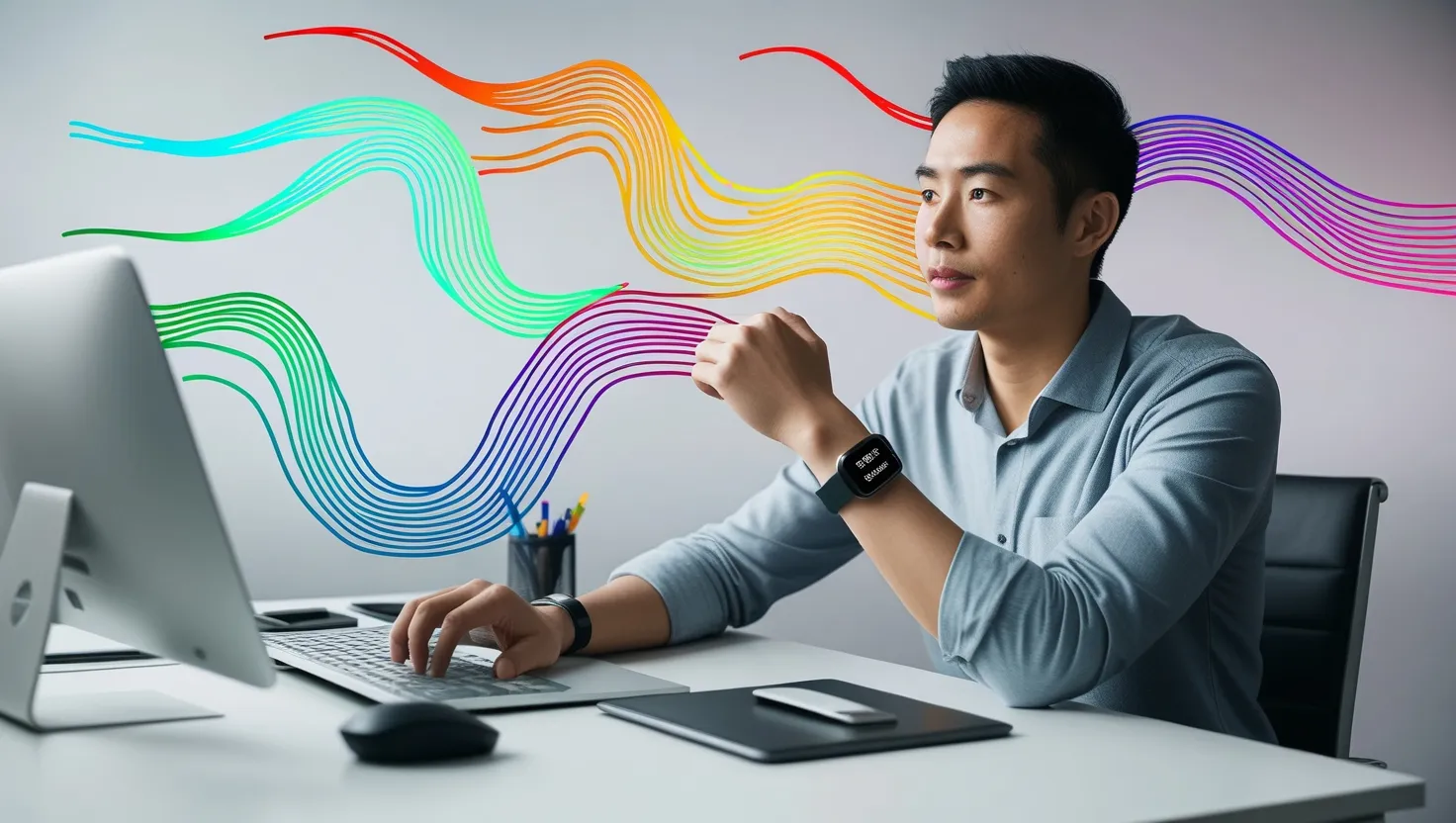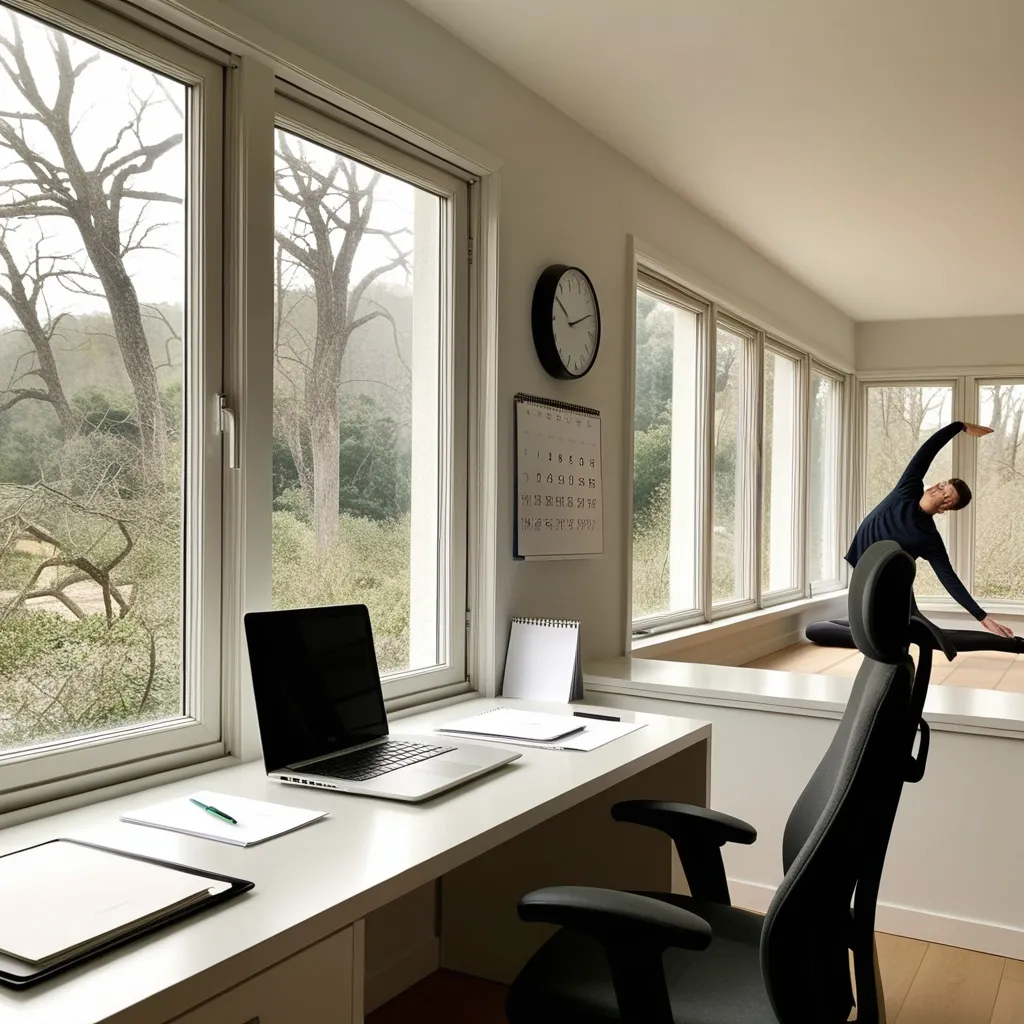Imagine a workday where every task you undertake is perfectly synchronized with your body’s natural rhythms. This isn’t about following generic productivity tips or adhering to a one-size-fits-all schedule; it’s about creating a personalized work rhythm that aligns with your unique physiological patterns.
To achieve this, we need to delve into the world of biometric technology, which has advanced significantly in recent years. Biometrics, such as fingerprint scanning, facial recognition, and iris scanning, are no longer just tools for security and attendance tracking; they are also being used to monitor and understand our internal physiological states.
Understanding Your Physiological Rhythms
Your body operates on various natural cycles, including the well-known circadian rhythm, which governs your sleep-wake cycle, and the lesser-known ultradian rhythms, which influence your energy levels throughout the day. By continuously monitoring biomarkers like heart rate variability, cortisol levels, and brain wave patterns, you can identify your peak performance windows for different types of tasks.
For instance, you might discover that your analytical skills are at their best when your body temperature is highest, typically in the late morning or early afternoon. On the other hand, your creative juices might flow more freely during specific phases of your ultradian rhythm, such as the 90-120 minute cycles that occur throughout the day.
Tailoring Your Workflow
Once you have a clear understanding of your physiological rhythms, you can start tailoring your workflow to align with these natural ebbs and flows. This approach turns productivity into a finely tuned dance with your biology, making work feel less like a grind and more like a natural extension of your physical self.
For example, if you know that your creative energy peaks in the morning, you might schedule your most innovative tasks for this time. Conversely, if your analytical skills are sharper in the afternoon, you could reserve complex problem-solving tasks for then.
Reducing Stress and Increasing Efficiency
Aligning your work with your physiological rhythms can have several benefits. It can lead to increased efficiency, as you’re tackling tasks when your body is primed for them. This synchronization also reduces stress, as you’re not forcing yourself to perform tasks when you’re not at your best.
Moreover, this approach can lead to a deeper sense of alignment between your professional goals and personal well-being. When you’re working in harmony with your body’s natural cycles, you feel more balanced and in control, which can significantly enhance your overall quality of life.
The Role of Biometric Technology
Biometric technology plays a crucial role in this personalized productivity approach. Advanced biometric devices can monitor your physiological states in real-time, providing valuable insights into your performance and productivity.
For instance, wearable devices can track your heart rate variability, which is a strong indicator of your stress levels and overall well-being. Brain wave sensors can monitor your cognitive states, helping you identify when you’re in a state of high focus or creativity.
Workplace Applications
This concept is not limited to individual productivity; it can also be applied on a larger scale within the workplace. Companies are increasingly using biometric technology to optimize employee performance and productivity.
By integrating biometric monitoring into their workforce management systems, businesses can gain a better understanding of their employees’ physiological rhythms. This information can be used to create personalized work schedules, ensuring that each employee is working during their peak performance windows.
Ethical Considerations
While the benefits of biometric productivity optimization are clear, there are also ethical considerations to be taken into account. The use of biometric data raises concerns about privacy and autonomy, as it involves the continuous monitoring of employees’ internal states.
It’s essential for companies to ensure that any biometric data collected is used responsibly and with the full consent of the employees. This includes implementing robust data protection policies and ensuring transparency about how the data will be used.
Future of Work
As we move forward, the integration of biometric technology into our daily lives and workplaces is likely to become more prevalent. This technology has the potential to revolutionize the way we work, making it more efficient, less stressful, and more aligned with our natural physiological rhythms.
In this future, work will no longer feel like a grind but rather a natural extension of our physical selves. By embracing this technology and understanding our unique physiological patterns, we can create a more harmonious and productive work environment that benefits both individuals and organizations.
Practical Steps
So, how can you start implementing this approach in your own life? Here are a few practical steps:
- Invest in Wearable Devices: Start by using wearable devices that can track your heart rate variability, body temperature, and other physiological markers.
- Keep a Journal: Keep a daily journal to track your energy levels and performance throughout the day. This can help you identify patterns and peak performance windows.
- Experiment with Schedules: Experiment with different schedules to see what works best for you. Try scheduling your most demanding tasks during your peak performance windows.
- Seek Feedback: Seek feedback from colleagues or a mentor to get an outside perspective on your work patterns and how they can be optimized.
By taking these steps, you can begin to align your work with your natural physiological rhythms, leading to a more efficient, less stressful, and more fulfilling work life.
In conclusion, the future of productivity is not about generic tips or one-size-fits-all schedules; it’s about creating a personalized work rhythm that aligns with your unique physiological patterns. By leveraging biometric technology and understanding your body’s natural cycles, you can turn work into a natural extension of your physical self, leading to increased efficiency, reduced stress, and a deeper sense of alignment between your professional goals and personal well-being.






